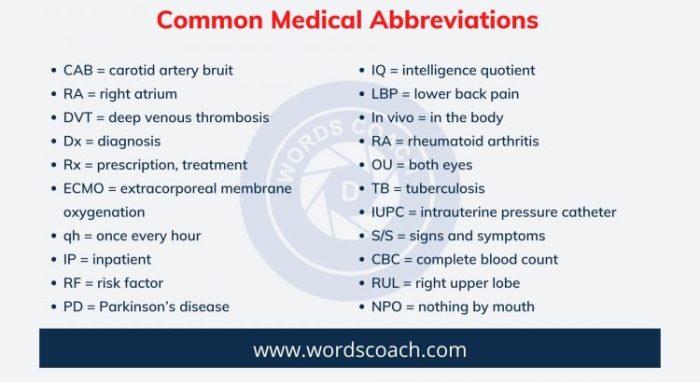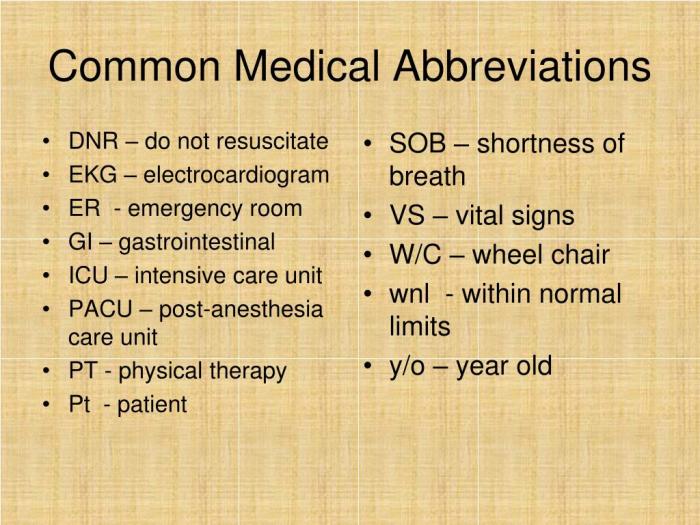SUD medical abbreviation pregnancy is a serious issue that can have significant consequences for both the mother and the child. Understanding the causes, risk factors, and treatment options for SUD during pregnancy is crucial for ensuring the health and well-being of both parties.
This article delves into the complexities of SUD medical abbreviation pregnancy, providing a comprehensive overview of the topic.
Define SUD Medical Abbreviation Pregnancy
SUD is a medical abbreviation that stands for substance use disorder during pregnancy. It refers to the use of illicit drugs, alcohol, or other substances by a pregnant woman that can harm the health of both the mother and the developing fetus.
In medical documentation related to pregnancy, SUD may be used in various contexts, such as:
- To indicate a history of substance use before or during pregnancy
- To describe the type of substance(s) being used
- To document the severity of the substance use disorder
- To guide treatment and management decisions
Causes and Risk Factors for SUD in Pregnancy, SUD medical abbreviation pregnancy
The causes of SUD in pregnancy are complex and multifaceted. Some common risk factors include:
- Personal history of substance use
- Mental health disorders, such as depression or anxiety
- Trauma or abuse
- Social factors, such as poverty or lack of support
- Environmental factors, such as exposure to drugs or alcohol
Substance use disorders during pregnancy can have significant negative impacts on maternal and fetal health, including:
- Preterm birth
- Low birth weight
- Birth defects
- Developmental delays
- Increased risk of maternal mortality
Diagnosis and Screening for SUD in Pregnancy

Diagnosing SUD in pregnancy involves a comprehensive evaluation that may include:
- Medical history and physical examination
- Substance use screening tools
- Laboratory tests
- Psychological assessment
Early detection and intervention for SUD during pregnancy is crucial to improve outcomes for both the mother and the child. Healthcare providers should routinely screen pregnant women for substance use and provide appropriate referrals for treatment and support.
Treatment and Management of SUD in Pregnancy

Treatment for SUD in pregnancy typically involves a combination of medical, behavioral, and social interventions. Treatment options may include:
- Medications to manage withdrawal symptoms and cravings
- Counseling and therapy
- Support groups
- Prenatal care and monitoring
Healthcare providers play a vital role in providing support and resources to pregnant women with SUD. They can help women access treatment, monitor their progress, and provide ongoing support and guidance.
Outcomes and Prognosis for SUD in Pregnancy
The outcomes and prognosis for pregnant women with SUD vary depending on the severity of the disorder, the type of substance(s) used, and the availability of treatment and support. However, research suggests that women who receive treatment for SUD during pregnancy have better outcomes than those who do not.
Factors that influence the long-term health of both the mother and child include:
- The type of substance used
- The duration and severity of use
- The presence of other risk factors, such as mental health disorders or poverty
- The availability of treatment and support
Concluding Remarks

In conclusion, SUD medical abbreviation pregnancy is a complex issue that requires a multidisciplinary approach involving healthcare providers, social workers, and support groups. Early detection, intervention, and treatment are essential for improving outcomes and ensuring the long-term health of both the mother and child.
Expert Answers: SUD Medical Abbreviation Pregnancy
What is SUD medical abbreviation pregnancy?
SUD stands for substance use disorder, and SUD medical abbreviation pregnancy refers to the presence of a substance use disorder during pregnancy.
What are the risk factors for SUD medical abbreviation pregnancy?
Risk factors include a history of substance use, mental health disorders, and certain environmental factors.
How is SUD medical abbreviation pregnancy diagnosed?
Diagnosis typically involves a combination of medical history, physical examination, and laboratory tests.
What are the treatment options for SUD medical abbreviation pregnancy?
Treatment options may include medication-assisted treatment, behavioral therapy, and support groups.